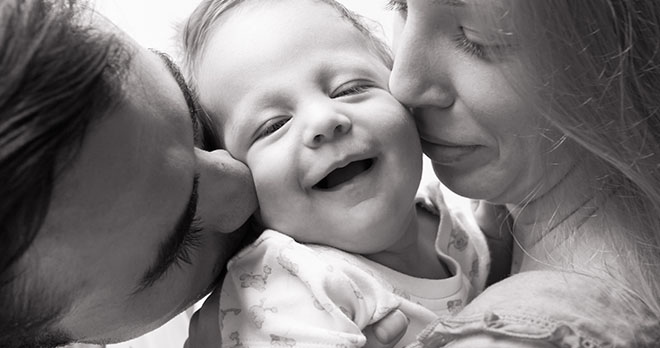What you need to know about Group B Strep Support this Group B Strep Awareness Month

According to the Royal College of Obstetricians and Gynaecologists, Group B Streptococcal (GBS) bacteria is the most common cause of life-threatening infection in newborn babies. GBS can result in still birth, preterm birth, sepsis and meningitis.
Many pregnant women carry GBS bacteria on the surface of their vaginas without it causing any problems to their babies. However, some babies can become infected by GBS when the bacteria travel up the vagina into the womb, where it can reach the baby by coming into contact with the bacteria during vaginal birth.
When the GBS bacteria travel up the vagina during pregnancy, the bacteria multiply rapidly and the membranes surrounding the baby may become infected.
Group B Strep Support
Group B Strep Support (GBSS) exists to provide up to date information to expectant parents and support affected families. The charity’s aim is for every pregnant woman to be fully informed about group B Strep and given the opportunity to have a sensitive ECM test to detect the presence of GBS in pregnancy.
Testing for GBS in pregnancy
The ECM test (Enriched Culture Medium test) is the international ‘gold standard’ for detecting GBS bacteria.
Although the ECM test is not always offered on the NHS, the cost of an ECM home testing pack starts from just £35. Other types of tests are available but the results are not always as reliable and may return false negative results.
The results of the ECM test
A positive test result is highly reliable, regardless of the type of testing. If you have received a positive test result, you should tell your health professional.
A positive GBS test result during pregnancy means you should be offered intravenous antibiotics in labour, which will reduce the chance of your baby developing GBS infection.
If you have received a negative test result, the reliability of the result depends on the type of test used. A negative ECM test result within 5 weeks of delivery means intravenous antibiotics during labour may not be indicated unless other risk factors for GBS infection are present.
Other risk factors for GBS infection in newborn babies
In addition to having a positive GBS test, other factors increase the chance of newborn babies developing GBS infection. These include if a woman’s waters break before labour starts; going into labour before 37 weeks of pregnancy; the presence of GBS bacteria during a previous pregnancy; or if a previous baby developed group B Strep infection.
Major new trial in 2019
As keen campaigners for routine testing for GBS, it has been an exciting year for Group B Strep Support as the National Institute for Health Research has allocated £2.8m to a new clinical trial, looking at the clinical and cost-effectiveness of testing women for Group B Strep bacteria at the end of their pregnancy.
The trial will look into two different tests: A test taken at 35-37 weeks of pregnancy and another test taken at the start of labour.
At the moment, the UK National Screening Committee (NSC) does not recommend routine testing for GBS due to the absence of randomized data on whether it is both clinically and cost effective. This trial will take place in around 80 maternity units in England, Scotland and Wales. It is hoped that this project will provide the NSC with the evidence required to implement universal GBS screening in the UK.
Information & Support
Group B Strep Support offers a huge range of free services for expectant parents and for new parents affected by GBS infection. The charity has information on counselling services and organisations where new parents can access support.
Together with the Royal College of Obstetricians and Gynecologists (RCOG), Group B Strep Support has published an information leaflet on GBS in pregnancy and newborn babies. The leaflet can be found on their website and is designed for anyone planning to become pregnant, who is pregnant, or who has recently had a baby. The leaflet includes the current UK recommendations for preventing GBS infection in newborn babies and aims to ensure that all women are fully informed on GBS and the different options available to them for testing and treatment.
If you have a baby who has been affected by GBS infection, you may have questions that require answers. As lawyers working with families affected by GBS in young babies, RWK Goodman are proud to be recognised on the Group B Strep Support Legal Panel.
While Group B Strep Support works all year round to support families affected by GBS, Group B Strep Awareness Month provides an opportunity for everyone to pull together, to raise awareness of group B Strep and to help to save more babies’ lives. So look out for #GBSAM19 on social media!